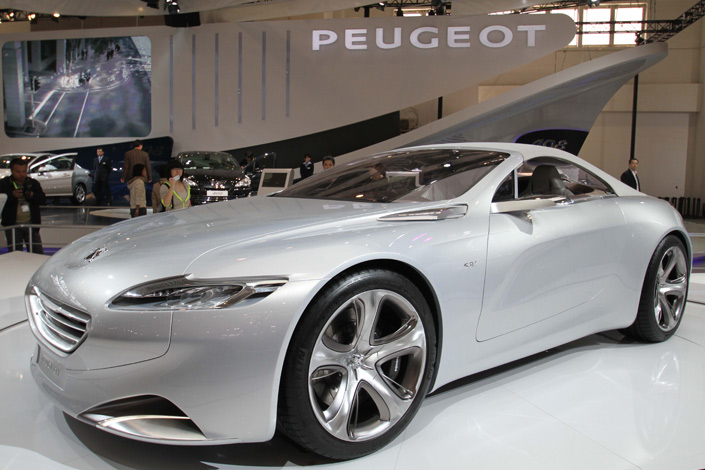PSA Sputters in China During First Quarter

(Beijing) — France’s PSA Group, maker of Peugeot and Citroen cars, saw its China sales plunge 46% in the first quarter as it suffered from lack of scale, chaos in its dealer network, and competition from rising Japanese brands in the world’s largest auto market.
Sales at PSA’s main joint venture with Dongfeng Motor Group Co. Ltd. tumbled 45.3% in the first three months of the year to 80,298, while its smaller joint venture with Changan Automobile (Group) Co. Ltd. fell by an even steeper 62% to just 1,906 vehicles, according to figures released by the company on Wednesday with its latest quarterly results.
The Dongfeng venture makes cars under PSA’s mainstream Peugeot and Citroen brands, while Changan makes the company’s upscale DS cars.
PSA’s quarterly declines mirrored similar retreats for other major foreign brands, as China scaled back tax incentives designed to encourage sales of small-engine cars. But the PSA declines were far larger than a 7.6% decline for Volkswagen AG and a 19% fall for Ford Motor Co.
Dongfeng Vice President Liu Weidong told media earlier this month that PSA’s main joint venture was being hurt by three major factors. Chief among those was the company’s late arrival to SUVs, which have become a hot seller among Chinese car buyers.
The company has also been hurt by resurging Japanese brands, which suffered their own setback five years ago when many consumers boycotted such cars at the height of a territorial dispute between Beijing and Tokyo. Lastly, anti-monopoly policies from Beijing prohibit the company from working closely with its dealers on pricing.
“Our final sale prices were in a state of disarray,” Liu said. “There was a period when our dealers were selling cars at losses of 4,000 yuan ($580), 5,000 yuan. In the end it was a real bloodbath with huge losses for everyone. In that kind of environment, it’s natural that no one would be paying attention to customers and service.”
Liu also attributed the difficulties to different priorities for the two joint venture partners, with PSA focusing more on profitability while Dongfeng wants to gain market share.
PSA’s weak China performance came as it posted a broader 4.2% gain in first quarter worldwide sales. China now accounts for 11.4% of PSA’s sales, behind its home European market and also the Middle East. The company’s weak performance contrasts with the overall China market, which grew 15% last year for passenger cars. French brands have been losing money in the market since the second half of 2015.
PSA arrived in China three decades ago, ahead of most global brands and at a time when domestic rivals were still in their infancy. But the company has suffered from an identity crisis in recent years as it finds itself in a difficult niche that makes its cars comparably priced but less-attractive than more-popular Western nameplates. At the same time, its models are significantly more expensive than lower-quality domestic Chinese brands.
Contact reporter Yang Ge (geyang@caixin.com)

- 1China Officials Dismiss Tax Hike Rumors After Tech Selloff
- 2Cover Story: How Gutter Oil Became a Prized Fuel for International Airlines
- 3Maersk Unit Takes Over CK Hutchison Panama Ports After Court Ruling
- 4Prominent Chinese Journalist Liu Hu Detained by Police in Chengdu
- 5China Provinces Set Cautious 2026 Growth Targets
- 1Power To The People: Pintec Serves A Booming Consumer Class
- 2Largest hotel group in Europe accepts UnionPay
- 3UnionPay mobile QuickPass debuts in Hong Kong
- 4UnionPay International launches premium catering privilege U Dining Collection
- 5UnionPay International’s U Plan has covered over 1600 stores overseas





